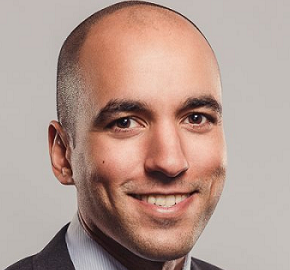As the global community continues to grapple with the coronavirus (COVID-19), the Atlantic Council is open for business. Our business, meetings, and events, however, are occurring virtually. For more information, please read an update from our President and CEO.
On June 22, the Atlantic Council Global Energy Center hosted Fred Ghatala, author of the Atlantic Council Global Energy Center’s report, Sustainable aviation fuel policy in the United States: A pragmatic way forward, and director for carbon and sustainability at Advanced Biofuels Canada, for a conversation on on the unique challenges of decarbonizing the aviation sector and opportunities to incentivize the use of SAF through pragmatic, sector-specific federal policies. The Honorable Rick Larsen, US congressman for Washington’s second district, will deliver opening remarks. This event will be moderated by Dr. Jennifer Gordon, managing editor and senior fellow at the Atlantic Council Global Energy Center.
Event Recap
On Monday, June 22, Fred Ghatala, author of the Atlantic Council Global Energy Center report, Sustainable aviation fuel policy in the United States: A pragmatic way forward, and principal at Waterfall Group Canada, joined Dr. Jennifer Gordon, managing editor and senior fellow at the Atlantic Council Global Energy Center, for a discussion on aviation sector decarbonization and policy-driven incentives for development and use of sustainable aviation fuels (SAF). The Honorable Rick Larsen, US Congressman for Washington’s second district, delivered opening remarks.
Representative Rick Larsen kicked off the conversation by relaying what he and the Aviation Subcommittee of the House Transportation and Infrastructure Committee are doing to support the use of SAF at the federal level and in Washington state. Larsen noted that the Port of Seattle is working to power every flight fueled at Seattle-Tacoma international Airport with at least a 10 percent blend of sustainable fuel by 2027 and communicated the details of a bipartisan resolution, “The National Evaluation of Aviation and Aerospace Solutions to Climate Change Act.” This legislation directs the US Department of Transportation to create a database of and report on current climate change mitigation efforts in aviation and aerospace, which includes SAF. It will also help identify barriers to adoption and additional mitigation efforts, and serve as a roadmap for next steps to achieve a 100 percent clean economy by 2050.
Larsen noted that although the United States does not currently have aircraft emission standards, he was fully committed to ensuring robust funding for the Federal Aviation Administration’s (FAA) Continuous Low Energy Emissions and Noise (CLEEN) Program, which supports the development of new aircraft technologies that advance sustainable alternatives to jet fuels.
Larsen concluded his opening remarks by shifting focus to his home state of Washington, underscoring his continued support for Washington State University’s Center for Excellence for Alternative Jet Fuels and the Environment, which partners with the FAA to develop cleaner fuel and reduce carbon emissions. Finally, he encouraged the FAA and Environmental Protection Agency (EPA) to continue developing guidance on aircraft design standards, emissions data collection, and monitoring in order to meet the objectives outlined in the 2006 International Civil Aviation Organization (ICAO) Carbon Offsetting and Reduction Scheme for International Aviation (CORSIA) agreement.
Turning to Fred Ghatala, Dr. Gordon opened the conversation with a broad question about the definition of sustainable aviation fuel and key findings from the report. Ghatala defined SAF as “a certified, timely drop-in distillate fuel that satisfies jet fuel form-fit function requirements and meets applicable sustainability requirements.” He immediately emphasized that SAFs were not experimental or theoretical fuels; rather, facilities across the world have already succeeded in producing fuel blends that contain between 1 and 100 percent sustainable fuel blends. The purpose of this recent report is to build on the analysis of a previous Atlantic Council Global Energy Center report, “Ready for takeoff? Aviation biofuels past, present, and future” in providing recommendations and encouraging federal leadership to support SAF development and deployment on a commercial scale.
In response to Dr. Gordon’s question about the need for an aviation-specific set of policies, Ghatala responded that in order for the aviation sector to decarbonize, policymakers need to implement legislation specifically focused on aviation jet fuel. As approximately 99 percent of emissions in the aviation sector come from the combustion of fossil jet fuel, the only way to truly decarbonize the sector is through policy tools specifically focused on fuel. He noted that until now, SAFs have only been included as an add-on to existing renewable and sustainability policies under a voluntary framework, largely because aviation biofuels are relatively new compared to their clean counterparts in other sectors of the economy. However, there are a number of reasons why now is an opportune time to implement sector-specific policies.
For one, Ghatala asserted, jet fuel is an expertly managed fuel supply with full fuel quality specifications. Furthermore, SAF has the ability to generate renewable identification number credits in the D4 (biomass-based diesel), D5 (advanced biofuels), or D7 (cellulosic biofuels) categories of the federal Renewable Fuel Standard, depending on the feedstock used. Ghatala also noted that SAFs reduce greenhouse gas emissions) significantly below the levels generated by fossil jet fuel; contain significantly reduced particulate matter as a sulfur-free fuel; and produce lower contrail (trails of condensed water from aircraft) formation in the upper atmosphere.
Turning to the recommendations laid out in the report, Ghatala asserted that policies must be based on current realities in regulatory and political frameworks and provide incentives that are stackable with existing policies. He advised that policies supporting SAF development and deployment be technology neutral, allow SAF access to the renewable credit market, and be national in scope. He highlighted a menu of tax-incentive and investment policy opportunities: a blenders’ tax credit, which would provide tax relief for fuels that blend renewable and fossil jet fuel, a production tax credit, excise tax relief for neat SAF, and infrastructure investment programs to promote dedicated tankage for SAF at airports for efficient delivery to aircrafts and demand centers. In the event that a carbon tax be passed in the United States, implementing a “zero rating” on SAF under a cap-and-trade or carbon tax system (which would exempt SAF from taxation) would also provide cost incentives for the deployment of SAF at the national level.
Ghatala wrapped up the discussion by addressing the economic challenges of SAF—a major hurdle for SAF deployment on a broad scale—as well as opportunities for local, federal, and international cooperation in the field of aviation biofuels. Reiterating his opening remarks, he emphasized the importance of demonstrated federal support for SAF. Clear statements from US leaders about the importance of SAF to the sustainability of the aviation industry, as well as government willingness to purchase aviation biofuels, can create broader commercial demand for SAFs. Likewise, despite Clean Air Act Section 231- which bars states from exercising jurisdiction over the environmental aspects of aviation, there are ways that local, federal, and international bodies can work in tandem to promote broader SAF deployment. For example, incentives similar to California’s Low-Carbon Fuel Standard, which generates compliance values for SAF, can encourage the use of SAF without requiring it. Finally, member states that are part of the International Civil Aviation Organization (ICAO) can work within the ICAO framework to encourage domestic SAF production and use.
Agenda
Opening remarks by
The Hon. Rick Larsen (D-WA)
US Congressman for Washington’s Second District
US House of Representatives
A conversation with
Fred Ghatala
Director of Carbon and Sustainability
Advanced Biofuels Canada
Moderated by
Dr. Jennifer Gordon
Managing Editor and Senior Fellow, Global Energy Center
Atlantic Council
Featuring
Fred Ghatala, director of carbon and sustainability, Advanced Biofuels Canada

Fred Ghatala is the director for carbon and sustainability of Advanced Biofuels Canada (ABFC), a national industry association established to promote the production and use of advanced biofuels in Canada. ABFC members are global leaders in commercial production of advanced biofuels and technology development, with over 14 billion liters of installed annual production capacity worldwide. Fred leads ABFC’s work to establish biofuel carbon value, lifecycle analyses in regulations, and sector engagement in sustainability initiatives. Fred has over fourteen years of experience in the Canadian renewable fuels sector and is a partner of Waterfall Group, a Vancouver based consulting business established in 2011.
Related experts
Related content
Learn more about the Global Energy Center

The Global Energy Center develops and promotes pragmatic and nonpartisan policy solutions designed to advance global energy security, enhance economic opportunity, and accelerate pathways to net-zero emissions.



